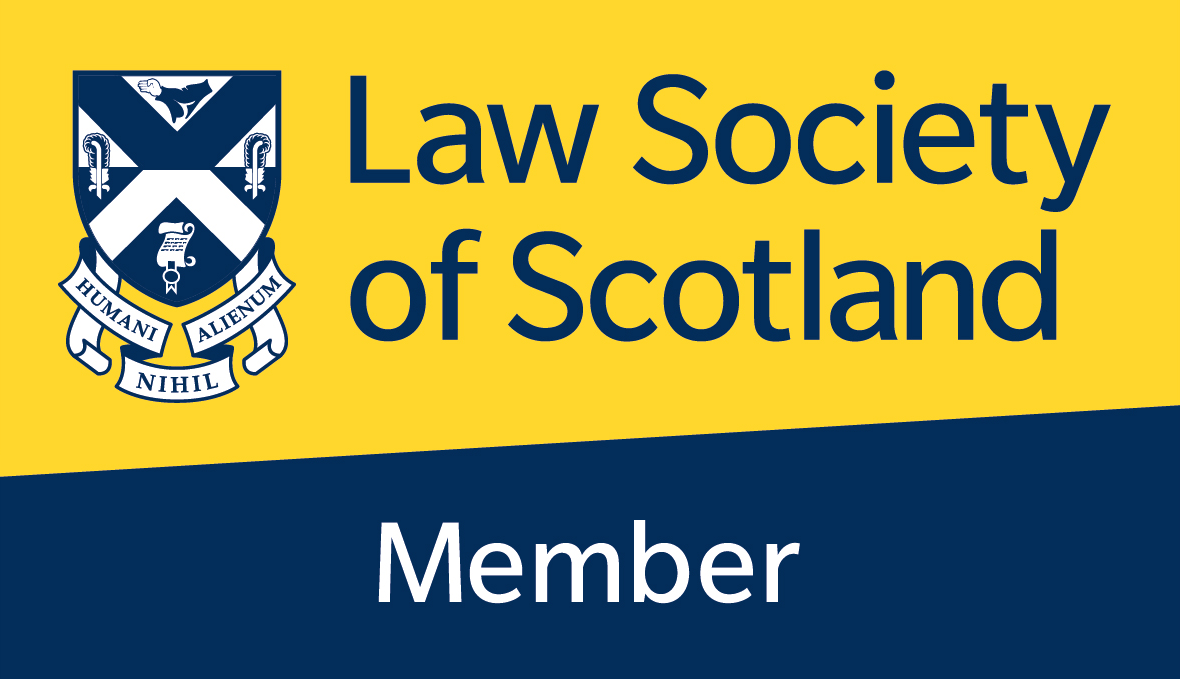Whiplash & Neck Injury Compensation Claims
Have you been involved in an accident which was not your fault and, as a result, you have had to go to the doctor because your neck and back are becoming stiff. It is likely that you have whiplash and will be entitled to compensation.

Below we have provided some detail on how our expert personal injury lawyers work out the value of a whiplash claim in Scotland. Please contact us for advice on any of the information detailed below and please remember that with Lawford Kidd we:
- Process your claim for free
- Are independently recognised as a leading firm of personal injury lawyers in Scotland.
- Work on getting you the maximum compensation possible for your claim. We are based in Edinburgh, but operating throughout Scotland including Glasgow, Aberdeen, Fife and Dundee and you will receive 100% of your compensation.
Whiplash & Neck Compensation Claims Values in Scotland
In terms of valuing a whiplash claim we use the Judical Studies Boards Guidelines, which set out a range of figures to assist in the assessment of damages in personal injury cases.
The guidelines were first published in March 1992 to give a frame work for valuing personal injury claims and the working party that prepared them sought to “distill the conventional wisdom contained in the reported cases”.
What that meant was that the Board looked at current reported decisions of judges who have had to assess personal injury accident claims and worked out for each type of injury what a claim might be worth.
In this guidance note you will see reference to “cases”. Basically, these are decisions where parties have not been able to agree on appropriate levels of compensation for whiplash injury and the sheriff has had to make a decision. These decisions are in writing and usually reported in a legal journal. The reference for the journal will be given.
The values listed here are for guidance only. These reflect only the 'pain and suffering' amount that a Court may award, not wage loss and other losses you could claim (see our compensation calculator page for an explanatory note of the types of damages in Scotland). You should also be aware that the value you may achieve will largely be dictated by the quality and experience of the solicitor dealing with your case.
- Cases which result in serious limitation of movement, permanent or recurring pain, ongoing stiffness or discomfort: £10,450 - £19,000
- Whiplash injuries where the period of recovery is protracted and there is a vulnerability to further injuries: £6,000 - £10,450
- Whiplash injuries where a full recovery takes place within around two years: £3,300 - £6,000
- Whiplash injuries where there is fully recovery between a few weeks and a year: up to £3,300
Crucial Differences between Scottish and English Whiplash Claims
When the Judicial Studies Board initially produced their guidelines it was felt that it would help lawyers because decisions by the High Court and circuit judges (in England) were relatively few and far between.
The Judicial Studies Board is an English body with no similar Scottish counterpart. Scottish lawyers are agreed that they should be used for Scottish cases but one matter that is very noticeable is that now in Scotland there is no shortage of reported cases particularly in relation to whiplash injury.
Sheriff Court and Court of Session in Scotland
Judges in both the Sheriff Court and Court of Session are regularly asked to make decisions on compensation for whiplash injuries. Why is this? The answer is quite simply that insurers are consistently undervaluing personal injury cases and this is particularly the case for whiplash injuries. They don’t want to pay the going rate. They try and palm you off with a low figure on the basis that you might take the offer now rather than fight it out in court. Some insurers prepare their own tariffs in the basis that they have a record of all the whiplash cases they settle and these will generally be less than the going rate in court. Their computer system therefore makes an offer on the basis, not of the going rate from the Judicial Studies Guidelines or reported cases, but from their own computer records setting out what they have managed to get away with by way of settlement for whiplash injury. Many claimants will take the insurance company’s offer to avoid any further delay, cost or trouble and this means that the insurers’ database is filled with low offers that have been accepted.
As a result of the insurers’ conduct you will see cases constantly coming before sheriffs who are being asked to decide on the level of accident compensation for whiplash injuries where the neck or back pain may have lasted three months, six months or a year or longer. You will see in this article how sheriffs have looked at the injuries and how they have made the decision.
Neck Injury Amounts - A Summary of Relevant Cases in Scotland
The Judicial Studies Guidelines (tenth edition) give a figure for minor neck injuries as follows.
a) Minor soft tissue and whiplash injuries where the symptoms are moderate and where a full recovery takes place within about two years, £3,300 to £6,000.
b) Where a full recovery takes place between a few weeks and a year, up to £3,300.
Basically, this means that where anyone is injured and has symptoms going on for a few weeks (this may be two or three weeks).
Insurers will often offer a couple of hundred pounds to try and settle the matter and this is not enough.
As long as February 2003 Sheriff Principal McPhail in the case Purves v Joydisc Limited (2003) Rep LR page 71 overturned an initial award of £350 on appeal for hurt feelings and awarded £750. He referred to the judge who prepared the guidelines for the assessment of general damages and quoted a remark saying that “in terms of personal injury claims, £750 would nowadays be the minimum or very close to the minimum, award for the very slightest physical injury deserving of damages at all”.
So you have a starting point for whiplash injuries of £750/£875. How do you assess damages where the injury has had a greater impact? In the case you’ve heard about earlier where Sheriff Kinloch had to make an award for Mrs Valentine he mentioned as a starting point for a claimant who had suffered pain and discomfort for seven months the case of Symington v Milne 2007 Rep LR 63. This case is of significance because it came before a senior judge, the Sheriff Principal, who took the view that an award of £2250 was appropriate for pain and suffering last between June 2004 and January the next year. He took into account the mother’s household duties and the fact that she couldn’t play in any “boisterous way” with her twin sons aged 4. She was in bed for four days after the accident.
A survey of recent cases following Symington v Milne generally follow a similar level of award.
In Macdonald v Bruce (Cupar Sheriff Court) GWD 5/9/08 at 434 a 49 year old sustained neck, lower back and arm pain, headaches and flashbacks leading to a curtailment of his leisure pursuits until a recover after seven months. He was awarded £2600 to take account of the psychological symptoms which lasted for 12 weeks and the effect on his leisure pursuits.
The impact on leisure pursuits was highlighted in Hunter v Niemiech GWD 30/4/10 Number 241 where a 24 year old delivery driver sustained daily pain in his neck area for around six weeks following the accident and had to take pain killers between 1 and 3 times a day. He then had intermittent discomfort resolving over four months. He was a keen footballer, playing twice a week and played golf several times a week with a handicap of 6. He also played tennis and couldn’t play golf or tennis for three months and football for four or five months. The sheriff took into account that the affect of the accident would have impacted less on a person with a more “sedentary” lifestyle. He was awarded £3,000 by Sheriff Platt.
A 25 year old housewife who sustained a soft tissue injury to her lower back which affected a pre-existing condition and had symptoms on a daily basis for six months after the accident with a full recovery after nine months (but still suffered anxiety and hyper vigilance driving for 18 months) was given £2750 by Sheriff Hammond in Jedburgh Sheriff Court (GWD 20/8/10 Number 492) Pollock v Westall) the sheriff felt it was appropriate to take account of the psychological impact.
A lower award was made to a 19 year old claimant Laura Tennant who pursued an action against Direct Line Insurance in Kilmarnock Sheriff Court (SLT 16/7/10 page 71) the sheriff awarded £2000 for pain and suffering for an injury to neck with pain radiating to the arms, back and shoulders and a full recovery after 13 months. She was also given £75 for inconvenience caused by the requirement to visit her GP and correspond with her lawyers. Although the sheriff comments that her injuries had a significant impact on her social life he didn’t accept that the claimant was altogether reliable. He thought she was exaggerating the pain and this would have been reflected after the award.
On 22nd September 2009 Sheriff Swanney in Greenock awarded £3800 to Mrs Simpson who was injured in Greenock the year before. Following the collision between her car and two other vehicles she was taken to Inverclyde Royal Hospital and given oxygen during the course of the journey. She had muscular injuries to her back and neck and bruising to her stomach. She was given pain killers and discharged from hospital the day of admission. She then saw her GP for her breathlessness. Her Consultant confirmed she had back and neck pains for 4 months and bruising to her breast which was visible for ten weeks. She had 3 months breathlessness which would have fully cleared up after 9 months. She had travel anxiety and her self confidence had been shattered by the accident. She was awarded £3800 for the injuries and the evidence was purely based on agreed medical reports.
Conclusions that can be drawn from reported cases are that for 6 to 7 months pain and suffering an appropriate awarded would be above £2000; a whiplash injury affecting a claimant for a year would be in the region of £3000. Each individual’s case is different and factors to be taken into account might be whether there was any psychological impact, anxiety when driving and the initial severity of the accident i.e. whether the claimant was housebound or in bed for a period following the injury. The impact on the claimant’s hobbies and social activities would be looked at as can be seen in the case of the very active 24 year old Mr Hunter. Where the sheriff has thought the claimant was perhaps exaggerating the extent of the injury this has impacted on the level of damages and a smaller award has been made.
Another typical example of a whiplash injury is set out in the reported decision of Sheriff Kinloch in Linlithgow Sheriff Court on 20th May 2008.
The claimant Mrs Valentine was struck by Mr McGinty. About 10 or 15 minutes after the accident Mrs Valentine experienced pain in her neck. She was taken to St John’s Hospital where a whiplash injury was diagnosed and she was given pain killers.
About three weeks after the accident she had pain requiring her to take pain killers every four hours. For a period of about five weeks she experienced further pain requiring her to take morning pain killers. The pain was mainly the bottom of her neck. By the time she seen a Consultant for a medical report some five months later the pain has mainly subsided and she was only taking an occasional pain killer. About a year after the accident she was pain free. A compensation award was made for her whiplash injury of £2250.
Contact our Whiplash Claims Solicitors in Edinburgh, Scotland
Click here to start making your claim for your whiplash injury or call us on 01312255214.









